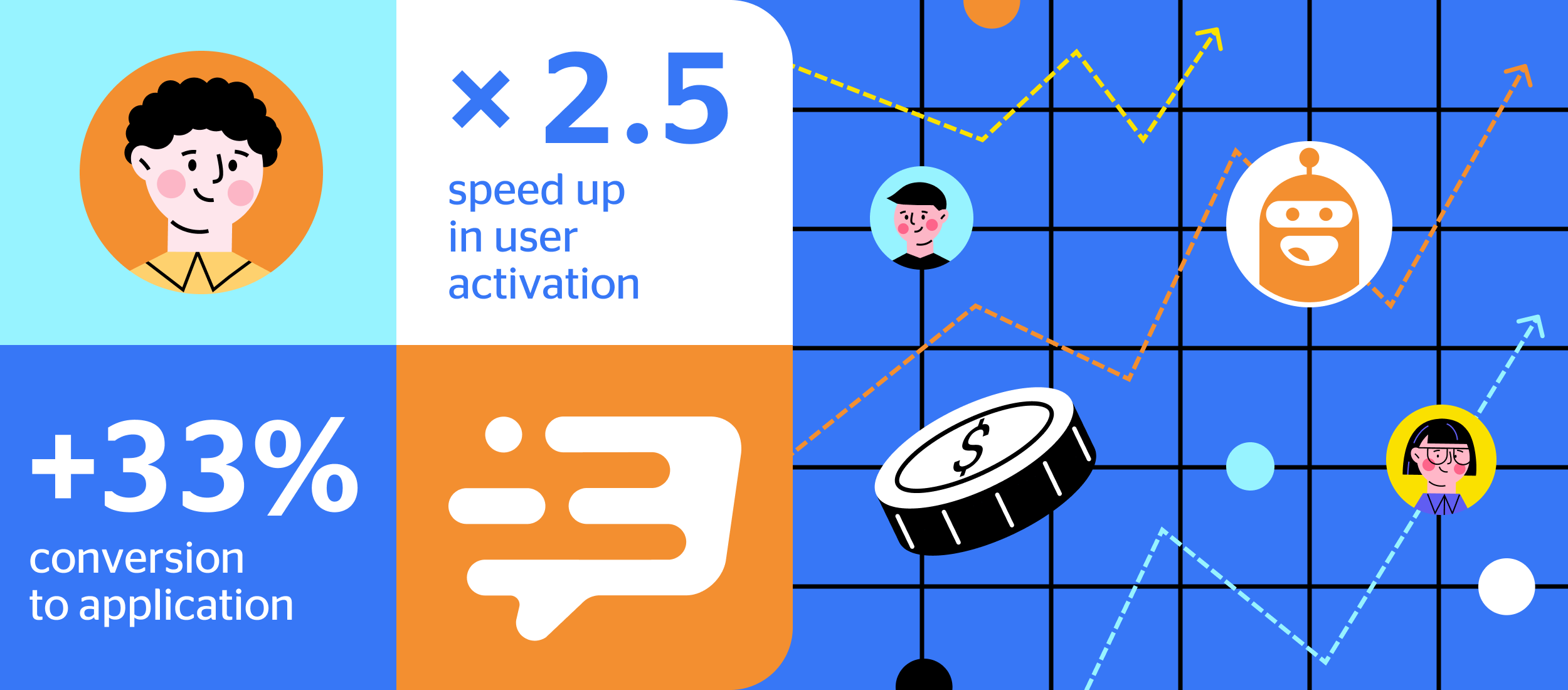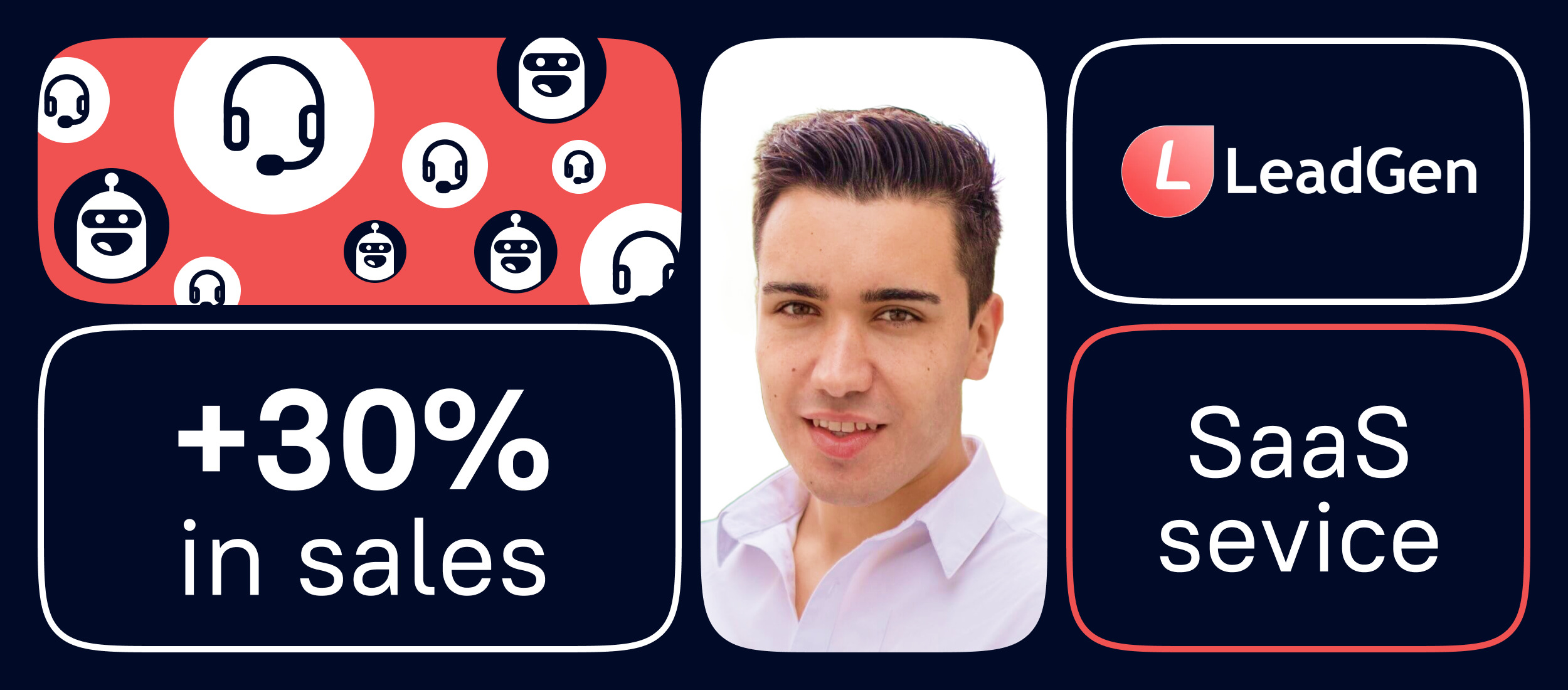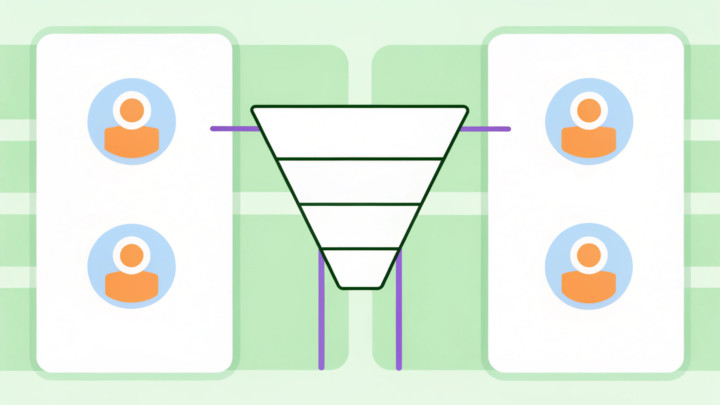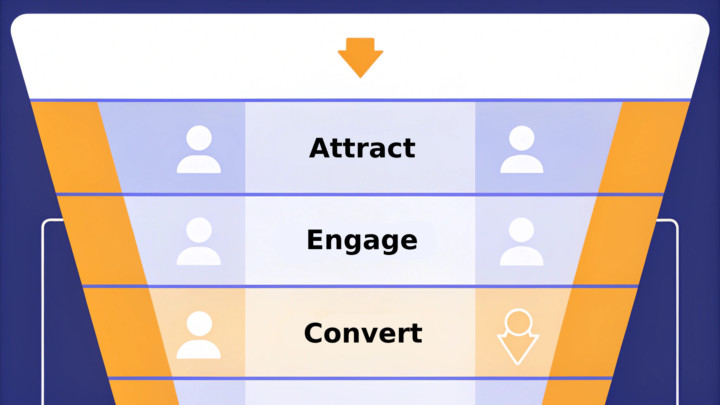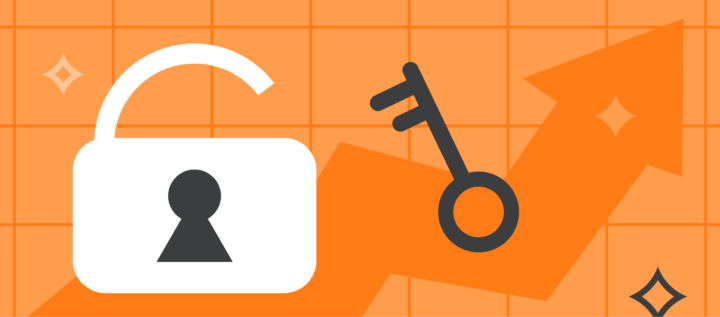B2B growth hacking marketing guide: 7 hacks to accelerate business success
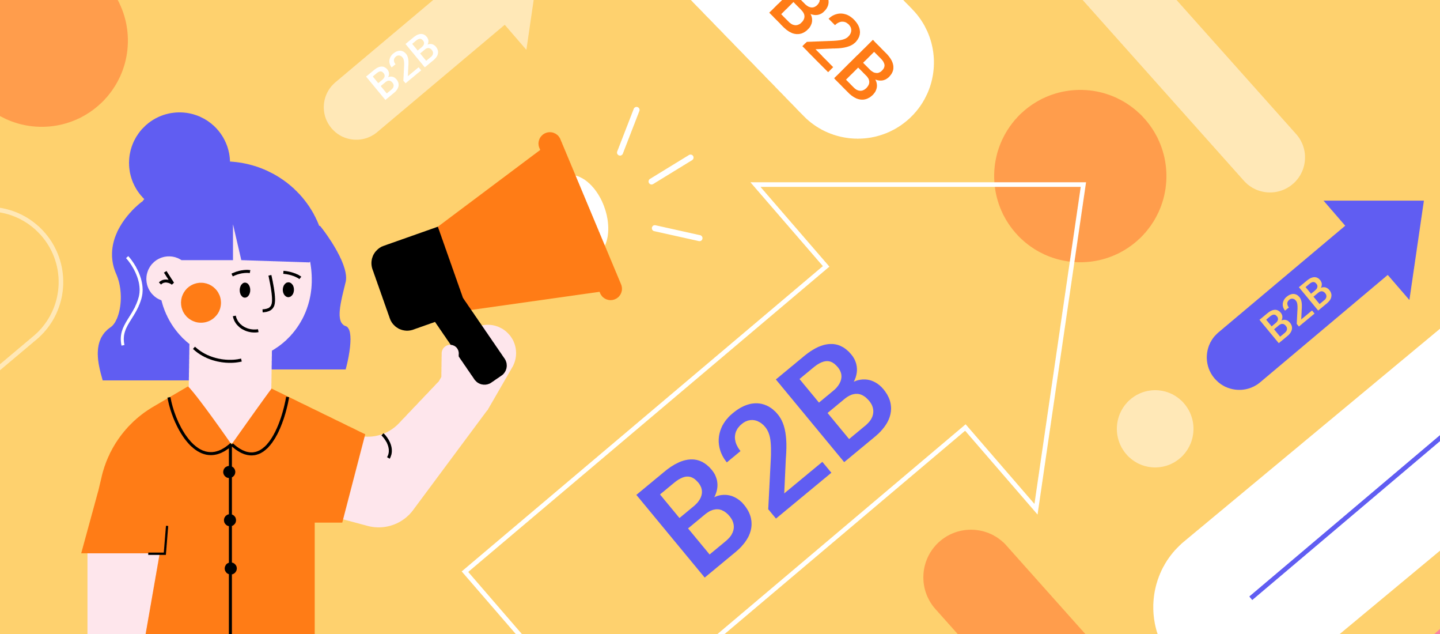
In today’s highly competitive business environment, it is crucial for companies to prioritize maximizing their growth potential to maintain a competitive edge. B2B growth marketing serves as a powerful strategy to achieve this objective.
In this extensive article, you will:
- Discover the power of B2B growth marketing, its core concepts, benefits, and practical tactics to drive customer led growth;
- Learn the key differences between B2B and B2C marketing;
- Understand how to tailor strategies to your target audience;
- Find out about WOW moments that leave a lasting impression on potential clients, influencing their decisions and boosting sales
We’ll guide you on building a high-performing, cross-functional growth marketing team and introduce you to cutting-edge growth marketing tools.
Ready to gain valuable insights and guidance to help your business flourish in a competitive landscape?
Buckle up! ✈️
What is B2B Growth Marketing?
B2B growth marketing is a well-planned approach that emphasizes fostering enduring, long-term development for organizations that provide products or services to other businesses.
Growth marketing is based on data-driven analysis, innovative experimentation, and creative thinking to uncover and leverage untapped opportunities within the market.
The primary objectives of B2B growth marketing are:
👉 Maximize customer acquisition;
👉 Improve customer retention;
👉 Boost revenue generation.
By focusing on these three key areas, businesses can develop and maintain a strong client base, ensuring their long-term success in a competitive landscape.
To achieve these goals, marketers employ a variety of B2B growth hacking strategies and tactics, such as content marketing, search engine optimization, email marketing, social media marketing, and ABM.
With these strategies, they can effectively reach their target audience, build brand awareness, and establish trust with potential clients.
Furthermore, B2B growth marketing places a strong emphasis on constantly analyzing and refining strategies based on data and product metrics framework KPIs. This iterative process allows marketers to identify which tactics are most effective, enabling them to allocate resources more efficiently and optimize their efforts.
Read also: Your Growth Marketing Strategy Template with guide and examples
Benefits of B2B Growth Marketing
Increased revenue
B2B growth marketing focuses on implementing targeted strategies that enable businesses to attract new clients and retain existing ones. Combining different techniques like content marketing, SEO, and email marketing, companies can effectively reach their target audience and generate more leads, ultimately resulting in increased revenue.
Read also: RevOps vs Sales Ops.
Competitive advantage
In today’s rapidly changing business environment, companies that prioritize growth marketing can stay ahead of competitors by constantly adapting to market shifts and evolving customer preferences. This proactive approach allows businesses to seize new opportunities, maintain a strong market presence, and establish themselves as industry leaders.
Enhanced brand awareness
A key benefit of hacking growth is its ability to boost brand recognition and credibility. By delivering valuable content and engaging with customers across multiple channels, companies can create a strong brand identity that differentiates them from their competitors and resonates with potential clients.
Data-driven decision-making
B2B growth marketing is grounded in data analysis, enabling businesses to make informed decisions and minimize the risks associated with investments. With continuous tracking and analyzing performance metrics, you can identify successful strategies, optimize their efforts, and allocate resources more efficiently.
Improved Customer Lifetime Value (CLV)
One of the core objectives of growth marketing is to understand and meet customer needs. With tailored solutions and fostering strong relationships with clients, growth marketing enhances customer satisfaction and loyalty. This, in turn, leads to higher customer lifetime value, as satisfied customers are more likely to continue doing business with the company and even refer new clients through word-of-mouth marketing.
More on growth marketing 👇
B2B Growth Marketing Tactics
Content Marketing
Crafting high-quality, engaging, and informative content is essential in attracting, educating, and converting potential customers.
Don’t forget to leverage the power of visual content. You can use poster templates to create informative and visually appealing posters that grab attention and effectively convey your message.
By consistently providing valuable insights and resources, you’ll position yourself as thought leaders in their industry, foster trust, and drive lead generation.
Search Engine Optimization (SEO)
Optimizing website content, structure, and metadata is crucial for improving search engine rankings and driving organic traffic.
Effective SEO strategies enable businesses to increase their online visibility and attract potential clients who are actively searching for relevant products or services.
Businesses often rely on SEO agencies like Tactica to leverage their expertise and experience in implementing on-page and off-page optimization techniques to achieve higher search engine rankings and maximize organic traffic.
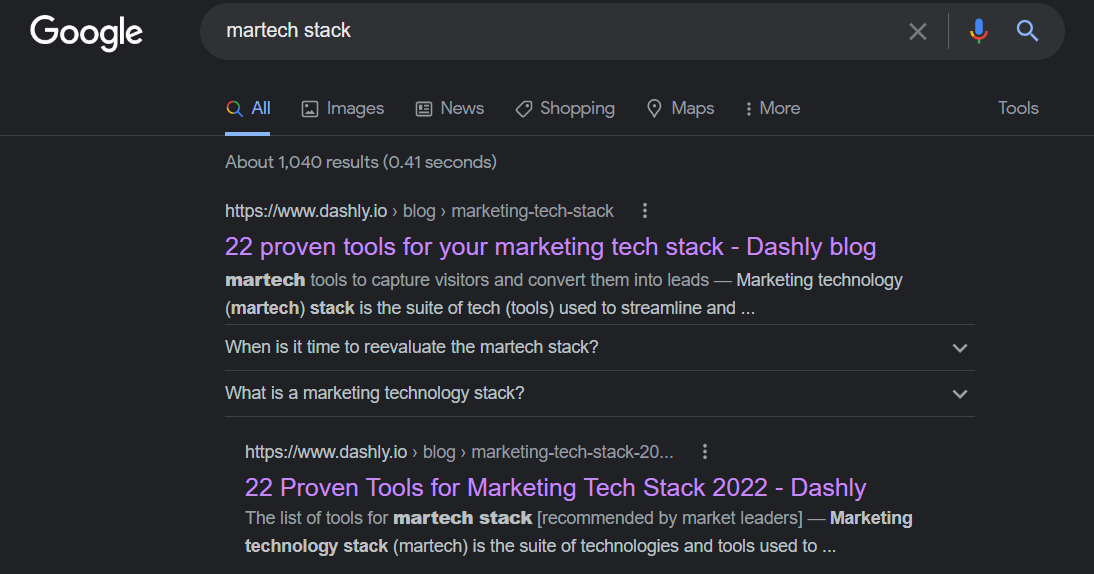
Email Marketing
Implementing targeted and personalized email campaigns allows businesses to nurture leads and maintain relationships with existing clients. By segmenting your audience and tailoring your messaging, you can provide relevant content that meets their unique needs and encourages them to take action.
Social Media Marketing
Leveraging social media platforms offers businesses the opportunity to engage with prospects, share valuable content, and showcase their brand personality. By building a strong social media presence, companies can foster genuine connections with their audience and drive brand awareness.

To enhance your SMM strategy, you can use social media growth hacking tools.
Webinars and Virtual Events
Hosting educational webinars and online events enables businesses to demonstrate thought leadership, generate leads, and build relationships. These events offer an interactive platform for sharing expertise, addressing pain points, and showcasing the value of your products or services.
Account-Based Marketing (ABM)
Tailored strategies for high-value accounts is crucial for creating personalized experiences that resonate with decision-makers.
ABM focuses on identifying, targeting, and nurturing key accounts through customized messaging and content, leading to stronger relationships and higher conversion rates.
Influencer Marketing
Collaborating with industry influencers can significantly increase brand credibility and expand your reach in the market. By partnering with respected experts who share your target audience, businesses can tap into their network and leverage their authority to drive brand awareness, trust, and ultimately, sales.
Thanks! Here’s your copy of 100 growth ideas
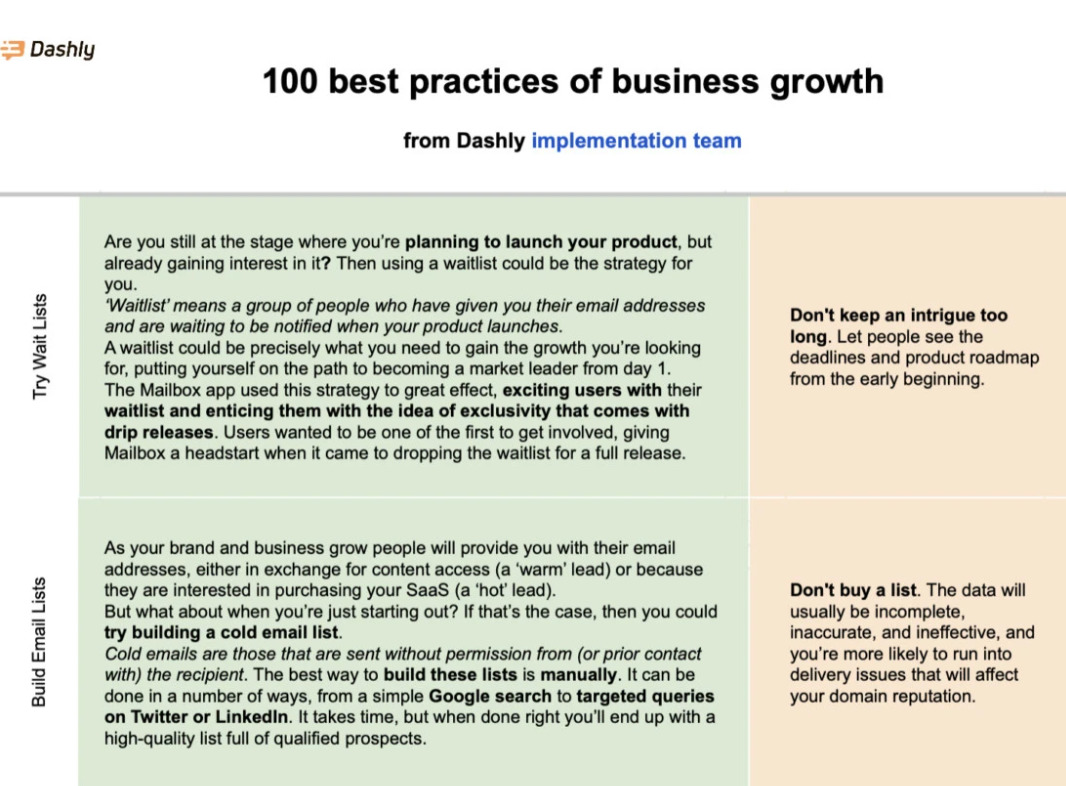
B2B vs. B2C Growth Marketing
Although B2B and B2C growth marketing share the common objective, they’re different when it comes to audience, sales cycle, decision-making process, and content strategy.
Let’s consider these differences step-by-step 👇
Audience
B2B marketing focuses on other businesses as their primary customers, whereas B2C marketing targets individual consumers. As a result, B2B marketers must address the needs of multiple stakeholders within an organization, while B2C marketers cater to the preferences and desires of individual buyers.
Sales cycle
The sales cycle in B2B marketing tends to be longer and more complex. This is due to factors such as larger financial investments, more extensive evaluation processes, and the need to obtain buy-in from multiple decision-makers within an organization.
In contrast, B2C sales cycles are typically shorter, as individual consumers often make purchasing decisions more quickly and with fewer external influences.
Decision-making process
B2B decision-making usually involves multiple stakeholders, including executives, managers, and end-users, who each have their own set of concerns and priorities.
B2B marketers must address these diverse needs by demonstrating the value of their product or service from various perspectives.
In contrast, B2C decision-making is generally more straightforward, as it typically involves a single individual or household making the final purchase decision.
Content Strategy
B2B content strategies often focus on providing educational, solution-oriented information that showcases the company’s expertise and helps prospects solve their specific challenges. This may include whitepapers, webinars, and case studies that highlight the benefits and features of the product or service.
Like these 😉
On the other hand, B2C content strategies tend to be more emotional and lifestyle-driven, with a focus on connecting with consumers on a personal level.
This could involve storytelling, aspirational imagery, and user-generated content that resonates with the target audience’s values and aspirations.
Growth Mindset
Sounds wonderful, right? And not clear at all.
Growth mindset implies that abilities, intelligence, and business performance can be cultivated through perseverance, commitment, and continuous learning. It contrasts with a fixed mindset, where individuals believe that their talents and intelligence are innate and unchangeable.
With a growth mindset, businesses foster an environment that encourages experimentation, tackling challenges, and learning from failures. This is particularly important in the context of B2B growth marketing for several reasons:
- Adaptability
The business landscape is constantly evolving, and growth marketers must be able to adapt to new trends, technologies, and customer expectations. It requires the willingness to learn and adjust strategies as needed. - Innovation
A growth mindset encourages creative problem-solving and the pursuit of novel approaches. It leads to the development of innovative marketing strategies that make your businesses stand out from competitors and resonate with your target audience. - Resilience
B2B growth marketing often involves trial and error, as not all strategies will yield immediate success. A growth mindset promotes resilience in the face of setbacks, helping marketers learn from their mistakes and refine their approach accordingly. - Continuous Improvement
With a growth mindset, businesses view their efforts as an ongoing process of learning and optimization. - Collaboration
A growth mindset fosters a culture of open communication and collaboration within organizations. This enables cross-functional teams to work together more effectively, combining their expertise and insights to develop and execute successful campaigns.
Growth mindset is essential for Product-Led Growth Marketing, an extremely effective strategy that will make your business stand out among the competitors.
In summary, cultivating a growth mindset is essential for successful B2B growth marketing because businesses can maximize their growth potential and thrive in an ever-changing competitive landscape.
If your growth mindset needs some inspo, we’re ready to help 👇
B2B growth marketing funnel
A B2B growth marketing funnel serves as a visual representation of the customer journey from initial awareness to conversion and beyond. It helps businesses better understand the various touchpoints and interactions that influence prospects throughout the buying process.
The typical stages of a B2B growth marketing funnel include:
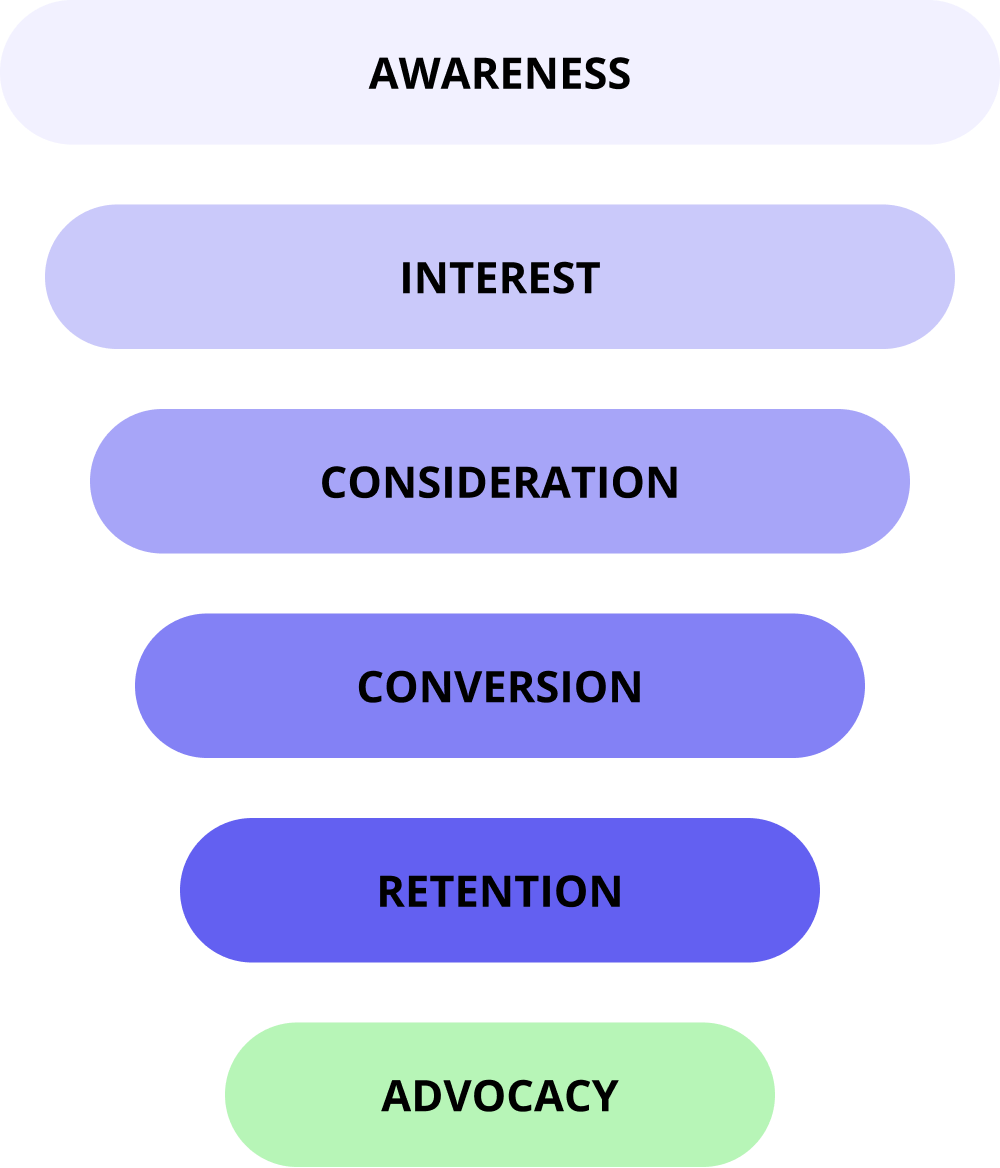
Now, let’s take a closer look at each stage 👀
👉 Awareness
Prospects find out about your brand and offerings through various marketing channels such as content marketing, social media, SEO, and paid advertising. The goal is to capture their attention and pique their interest in your product or service.
👉 Interest
Here, prospects engage with your content, sign up for newsletters, or attend webinars. Provide valuable information and resources that educate potential customers about the benefits of their offerings and help them address their specific pain points.
👉 Consideration
At this stage, users evaluate your offering against competitors and check if it fits their needs. It’s time for product demos, case studies, or input from colleagues. You need to show your unique value proposition and the advantages of the product or service.
👉 Conversion
Once prospects have evaluated their options and determined that your product or service meets their needs, they decide to purchase, becoming paying customers. At this point, you should provide a seamless buying experience and facilitate the onboarding process.
👉 Retention
Now, the focus shifts to retaining customers by ensuring that they continue to use your product or service and are satisfied with their experience. This may involve providing ongoing support, updates, and improvements to maintain customer satisfaction and loyalty.
By understanding and optimizing each stage of the B2B growth marketing funnel, businesses can create a more effective and targeted marketing strategy, resulting in higher conversion rates, improved customer satisfaction.
So, pay special attention to each stage of your growth hacking canvas.
Thanks! Here’s your copy of the growth strategy template
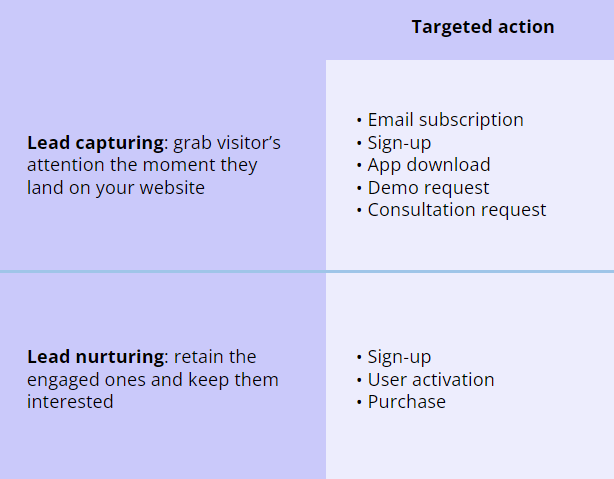
Applying rapid experimentation
In B2B growth marketing, rapid experimentation is an essential approach to quickly test, analyze, and iterate various strategies in order to identify the most SaaS growth hacks.
Formulating hypotheses
Your hypotheses should be based on market research, customer insights, and competitive analysis. Clearly outline the expected outcomes and the metrics that will be used to measure success.
Dashly has its own growth team. Before working on any hypotheses, they go through these questions:
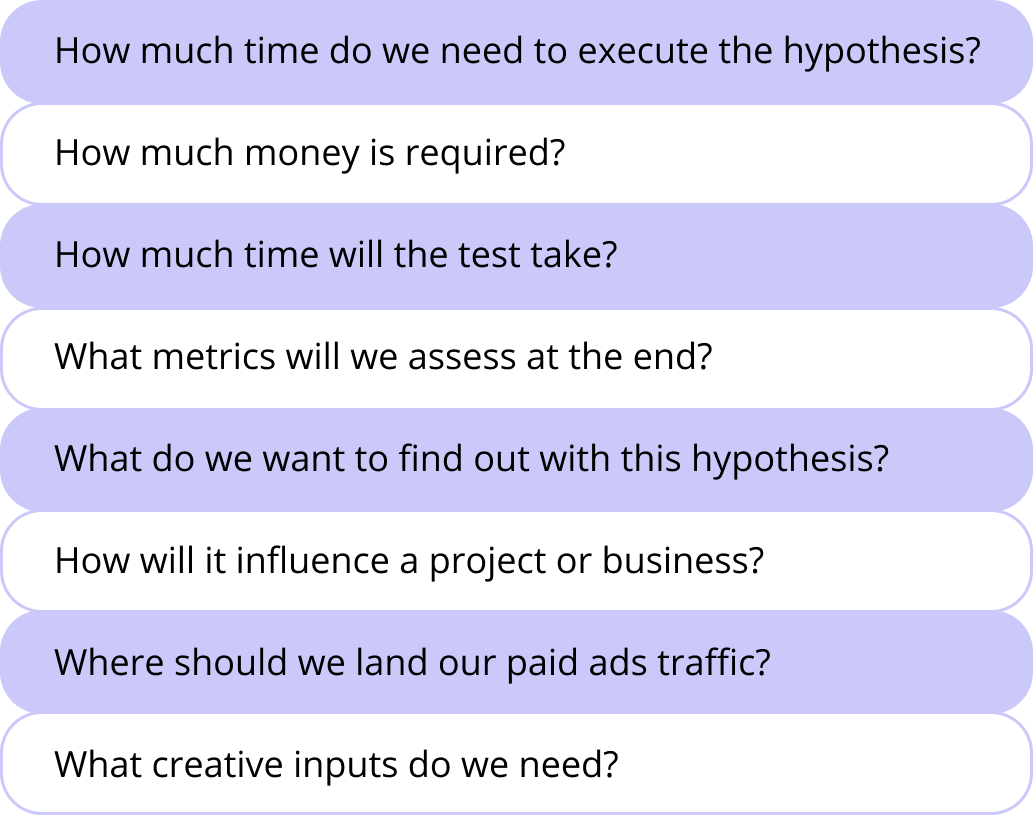
If you need inspiration for your experiments, check out our growth marketing playbook with over 40 ideas based on experience of the Dashly customers.
Or subscribe to a growth marketing newsletter.
Prioritizing experiments
With a list of potential experiments, rank them based on their potential impact, resources required, and ease of implementation. The questions above might help you with it 👆
With prioritizing, you focus on high-priority experiments that are more likely to generate significant results without consuming excessive time and resources.
Testing
Execute experiments in a controlled manner, carefully tracking key growth marketing metrics to measure success. Make sure that each experiment is designed to produce measurable and actionable results, and that any external factors are under control to the greatest extent possible.
Analyzing results
Once experiments have been conducted, assess the outcomes to determine which strategies are most effective. Analyze the data collected and draw conclusions about the success or failure of each tactic.
Consider any external factors that may have influenced the results, and determine if additional testing is necessary.
Iterating and scaling
Based on the analysis, refine successful strategies and scale them up, while discarding or adjusting underperforming ones. Continuously iterate on these tactics to optimize their performance, and regularly incorporate new experiments into your efforts.
18 business growth experts you should follow this year
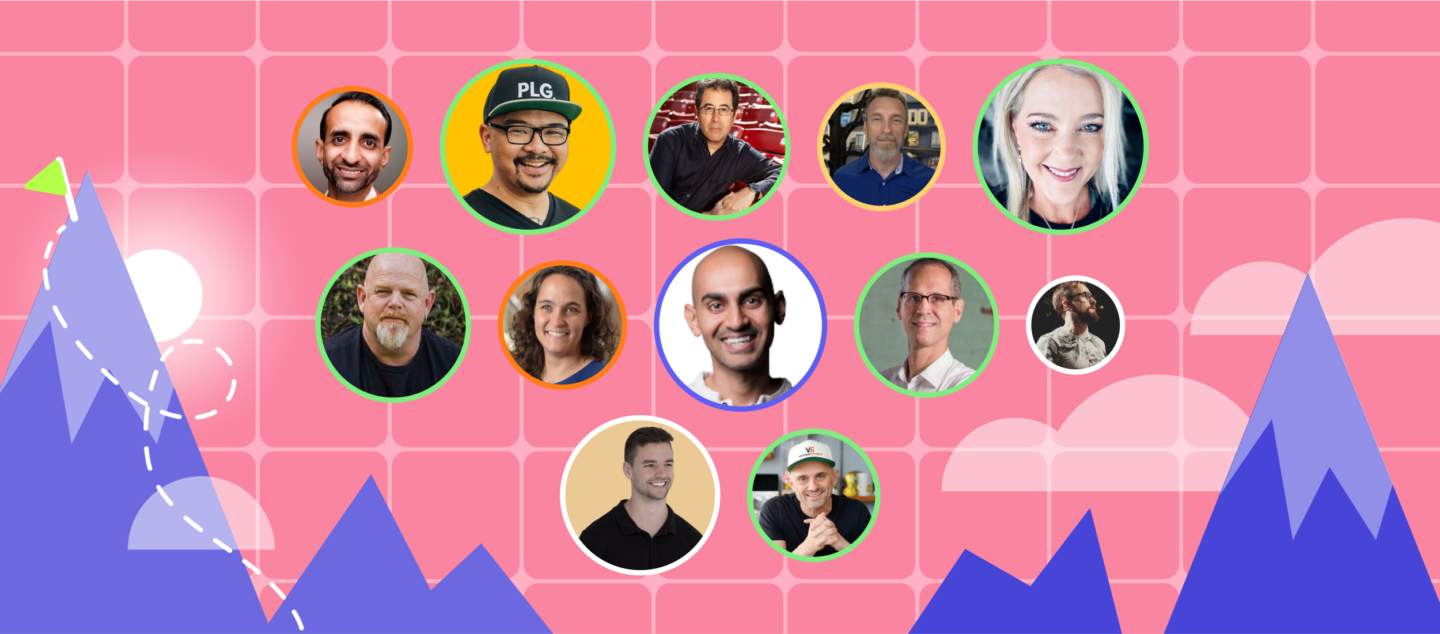
What are Growth Loops? How It Can Scale Your Company
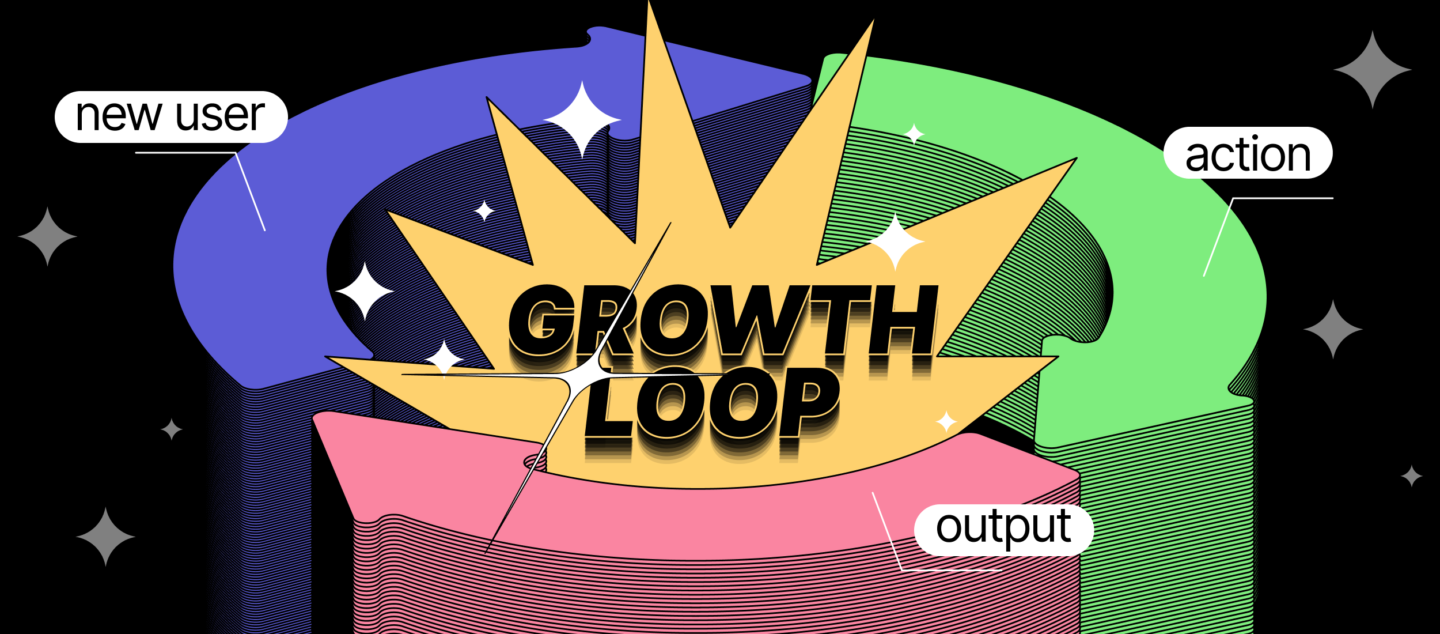
Product Led Growth Marketing: hack your product growth

By adopting a rapid experimentation approach, B2B growth marketers can quickly identify high-impact strategies, optimize their efforts, and drive sustained business.
Best growth hacking tools
The right growth hacking tools can significantly enhance your B2B growth marketing efforts, making them more efficient and effective. Let’s take a look at the best growth hacking tools available 👀
Dashly
Dashly is a conversational marketing platform with the main goal to maximize ROI. The main segment are SaaS and EdTech companies of different sizes.
Features for growth hacking
- User behavior tracking is one of the main features of the platform. You can track users’ data and activity (page views, clicks, etc.) in real-time and save all the necessary info in a lead card automatically.
Based on this data, you can generate relevant hypotheses and segment the audience for your experiments.
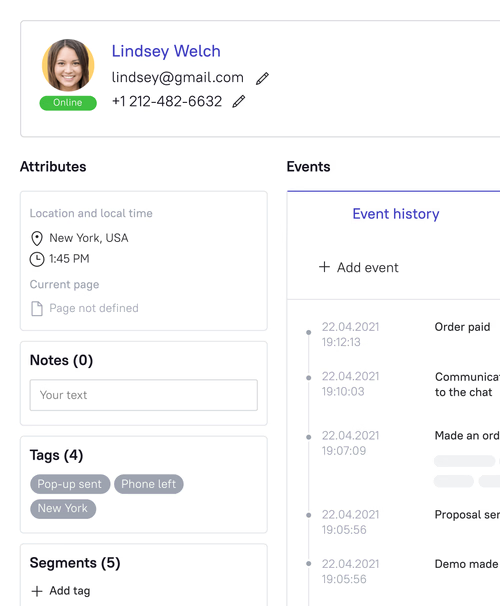
Live chat to create a direct communication channel between your agents and customers. The chat is empowered by socials and messengers integrations.
Pop-ups to target various segments with specialized offers.
- Chatbot to capture, qualify leads, and automatically engage them in the conversation at different stages of the funnel.
You can also use chatbots to carry out user research and collect feedback 👉
This is just one of plenty growth marketing tips on using chatbots on your website. Check the article for more!
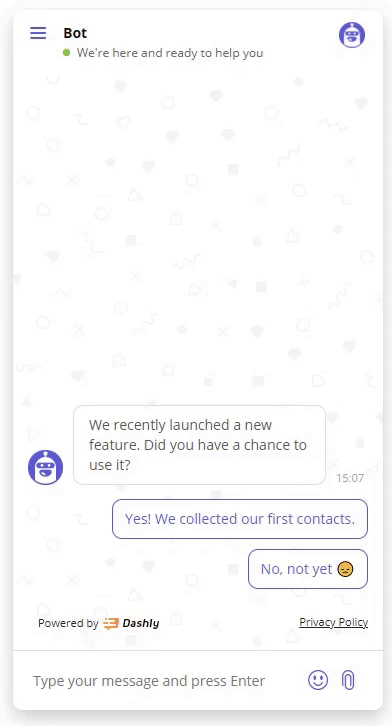
- Triggered email campaigns to reach out to those who left your website.
- A/B testing to test and compare different hypotheses to find out which one works best.
- Funnel analytics to spot the bottlenecks in the user journey so that you can see at what stage visitors leave your website, and when users leave your platform.
Ideally, you can look at the funnel before launching a campaign or a triggered message. A funnel will show you when you should start talking to your current and potential customers. - Campaigns report to track relevant campaigns performance in a visual dashboard.
- 30+ integrations to fit Dashly into your tech stack.
Pricing
Dashly offers three customizable paid plans. The price depends on your website traffic and add-ons you choose to include in your plan.
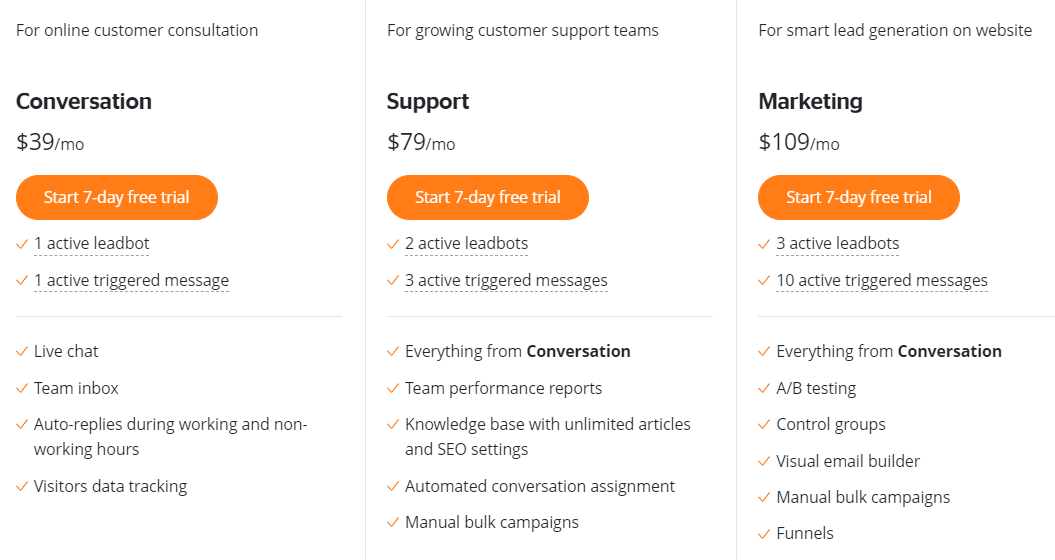
You get 7 days of free trial to test if Dashly suits your team.
Google Analytics
This powerful analytics platform allows you to track and analyze website traffic, user behavior, and campaign performance. It provides valuable insights into how users interact with your website, helping you make informed decisions to optimize your online presence.
The platform is free to use. It makes it extremely popular among businesses of al industries and sizes.
For enterprise-level companies, there’s a paid plan with in-depth analytics, starting at $12 500/mo.
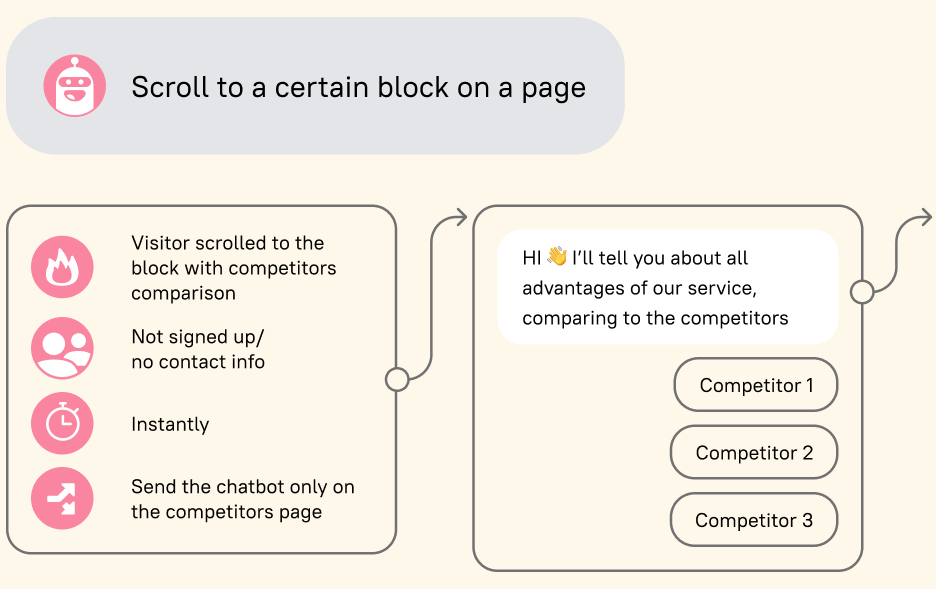
Get your free example of growth marketing playbook with 40+ templates for successful experiments
HubSpot
HubSpot is an all-in-one inbound marketing, sales, and customer service platform that helps businesses manage and automate various activities. Its features include email marketing, social media management, content creation, lead nurturing, CRM, and analytics, all in one centralized location.
HubSpot offers a free plan with limited functionality. For advanced paid plans, the price starts at $50/mo.
Ahrefs
A comprehensive SEO tool, Ahrefs enables you to conduct in-depth SEO analysis and keyword research to optimize your website and content for search engines. It also provides valuable insights into your competitors’ SEO strategies, allowing you to identify opportunities to gain a competitive edge in your market.
The pricing for the Ahrefs services starts at $99/mo.
Read also: A secret collection of growth marketing services Dashly team uses daily
Optimizely
Optimizely is a leading experimentation platform that allows you to implement A/B testing to optimize website design, user experience, and conversion rates. By testing different variations of your website elements, you can identify the most effective configurations and drive better results from your online presence.
The platform offers custom pricing for each set of features. For a content marketing suite (content creation, campaigns planning, and team collaboration), the paid plans start at $79/mo. However, there’s a limited free plan too.
Zapier
Zapier is an automation tool that streamlines workflows and integrates marketers tools to improve efficiency and productivity. With its vast library of app integrations, you can connect and automate tasks between different tools, saving time and reducing manual work.
Zapier offers a limited free plan to its users. If your growth team requires more advanced features, the paid plans start at $29/mo.
Picking the right toolset is the first important step to a successful growth team. Pick your own with our free growth hacking tools guide 👇
Thanks! Here’s your copy of 50 growth hacking tools
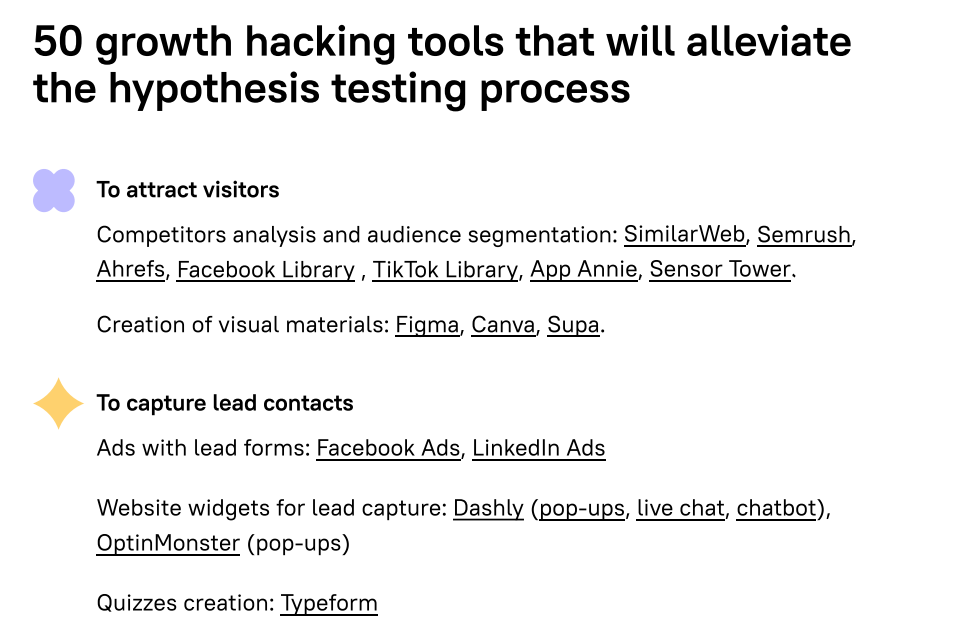
WOW moments to influence sales
WOW moments are these precious instances when your business exceeds expectations and delivers a memorable experience for potential customers.
By crafting these moments in your marketing growth strategy, you can influence decision-makers, strengthen your brand reputation, and increase the likelihood of closing deals. And that’s exactly what you strive to, isn’t it?
These are some examples of WOW moments:
Personalized demos
Customize product demos to highlight how your offering directly addresses the prospect’s unique pain points and objectives. By tailoring the demo to their specific needs, you demonstrate a deep understanding of their challenges and show that your solution is the right fit for their business.
To make a truly relevant and helpful demo, qualify users in advance.
You can save your team’s time and set up automated lead qualification with a chatbot. You can set it up to find out about:
- User’s position in a company;
- The task they hope to solve with your product or service;
- Previous experience.

It’s only one of many growth hacking examples you can test to find your own WOW moment.
Exceptional customer support
Provide prompt, helpful, and personalized customer support to build trust and rapport with potential clients. Going the extra mile to solve their problems or answer their questions can leave a lasting impression and set your business apart from competitors.
Thought leadership
Share valuable insights and expertise through blog posts, webinars, or speaking engagements to establish your company as an industry leader. By providing actionable advice and cutting-edge knowledge, you can demonstrate your authority in your field and build credibility with potential customers.
For this, you can send weekly digest with fresh content and valuable insight relevant to your industry.
Read also: 25 Growth Marketing Books to Skyrocket Success
Exclusive offers
Provide exclusive discounts, promotions, or offers to high-potential prospects, demonstrating your commitment to their success. These incentives can create a sense of urgency and encourage potential clients to take action and invest in your product or service.
Surprise gifts or gestures
Sending unexpected gifts or personalized notes to prospects can create a positive emotional connection with your brand. These gestures show that you value their business and are willing to go the extra mile to make them feel appreciated.
The WOW moments aren’t easy to achieve, but they transform user experience, turning customers into loyal brand advocates. So take your time to decide what makes you stand out in your niche.
Building a growth team
A successful B2B growth marketing strategy requires a cross-functional team with diverse skills, including marketing, data analysis, product development, and customer success. When building a growth marketing team, consider the following key roles:
- Growth Manage oversees the overall strategy, coordinates team efforts, and ensures alignment with business objectives. This person is responsible for setting goals, prioritizing experiments, and driving the execution of initiatives.
- Data Analyst collects, processes, and interprets data to ensure decision-making and measure the success of initiatives. They play a crucial role in identifying trends, uncovering opportunities, and providing actionable insights to guide the team’s efforts.
- Content Marketer develops and executes content strategies to attract, engage, and convert target audiences. They create various types of content, such as blog posts, case studies, and whitepapers, to educate prospects and generate leads.
- SEO Specialist optimizes website and content for search engines, driving organic traffic and improving online visibility. They conduct keyword research, technical SEO audits, and link building efforts to ensure your business ranks highly in search results.
- Product Manager collaborates with cross-functional teams to develop and enhance product offerings that meet customer needs. They are responsible for defining product roadmaps, prioritizing features, and ensuring seamless coordination between product development, marketing, and sales.
- Social Media Manager is responsible for managing your brand’s presence across social media platforms. They create engaging content, interact with your audience, and monitor your brand’s online reputation to amplify your reach and generate leads.
- Email Marketing Specialist designs and implements targeted email campaigns to nurture leads and maintain relationships with existing clients. They leverage segmentation, personalization, and automation techniques to create relevant and engaging email experiences for better profit margins.
By assembling a team with diverse skills and expertise, your business can better execute strategies, rapidly experiment with new tactics, and ultimately achieve sustainable growth in the competitive landscape.
Read also: Growth marketing vs performance marketing.
What’s next?
As the business landscape continues to evolve, B2B growth marketing will remain a critical component of long-term success. To stay ahead of the curve and maintain a competitive edge, companies should:
- Stay informed about emerging trends: Keep an eye on industry news, attend conferences and webinars, and follow leaders to stay updated on the latest developments in B2B growth marketing.
- Continuously update your skills: Invest in ongoing training and development programs to ensure that your team members have the knowledge and expertise required to execute effective growth marketing campaigns.
- Embrace new tools and technologies: Leverage cutting-edge tools and platforms to streamline your efforts and maximize results. Experiment with new automation software, AI-powered analytics tools, and other emerging technologies to stay ahead of the competition.
- Foster a culture of experimentation: Encourage your team to embrace a growth mindset and continuously test new ideas, strategies, and tactics.
- Monitor competitors: Analyze their successes and failures to learn from their experiences and identify areas where you can stand out and gain a competitive advantage.
- Collaborate with industry partners: Establish relationships with other businesses in your industry to share insights, resources, and best practices. This way, you access new perspectives, expand your network.
- Continuously optimize your marketing funnel: Regularly evaluate your funnel’s performance to identify areas for improvement. Conduct A/B testing, analyze conversion rates to drive better results.
For businesses seeking to streamline their B2B growth marketing efforts, Dashly is an invaluable tool.
Want more ideas for your strategy? 👇
FAQ on b2b growth hacking
What are some effective B2B growth hacks to increase business growth?
B2B growth hacks can vary greatly, but some effective ones include refining your targeting and segmentation, personalizing marketing efforts, optimizing your website for conversions, leveraging social media for brand awareness, and implementing referral marketing strategies.
How can hacking strategies be used in my business?
Hacking strategies in B2B typically involve iterative, data-driven techniques. By analyzing customer behavior data, A/B testing different approaches, and continuously refining your marketing and sales strategies, you can effectively drive business performance.
What is the best referral marketing b2b growth hack?
A prime example of this is the referral program run by Dropbox. They successfully used this tactic, offering extra storage space to their users both for referring new users and to these new users for signing up. However, remember that the suitability of a referral hack largely depends on the nature of your product, the characterization of your audience, and gap in the market.
How can a product be optimized for better performance?
Focus on meeting your customers’ needs, implementing a robust user feedback loop, and continuously improving the product based on this feedback. This customer-centric approach can drive engagement and retention.
What are the key differences between B2B and B2C strategies?
Even though the core principles remain the same, B2B and B2C growth hacking strategies usually differ in their implementation. B2B strategies often involve a longer sales cycle, more stakeholders, greater focus on relationship building, and maximize ROI activities.
Read also:
- Deep dive into growth marketing analytics with Dashly experts
- 22 SaaS growth hack Facebook tactics to boost your business
- B2B growth marketing: accelerating business success
- Demand Generation vs Growth Marketing: Where to focus?
- Skyrocket your company revenue with a complete guide to RevOps Revenue Operations
- RevOps tech stack: Guide to the best tools
- Revenue operations metrics: 10 metrics and KPIs to track your performance
- Product led growth metrics: 13 key indicators for SaaS companies to track
- PLG tools: Ultimate guide to the best instruments
- Benefits of Product led growth: 12 PLG benefits for your business
- Sales led growth: What is it and why your business needs it
- Growth marketing case studies: 12 stories with detailed tactics and numbers achieved
- RevOps best practices: 13 tactics to implement this year
- Growth marketing framework: Battle-tested insights from Dashly experts
- Growth Product Manager: Charting new frontiers in product scaling
- 20 product led growth examples to inspire your team [expert edition]
![The ultimate guide to growth marketing in 2025 [explained by a growth hacker]](https://www.dashly.io/blog/wp-content/uploads/2023/04/The-ultimate-guide-to-growth-marketing-explained-by-a-growth-hacker-720x317.png)

